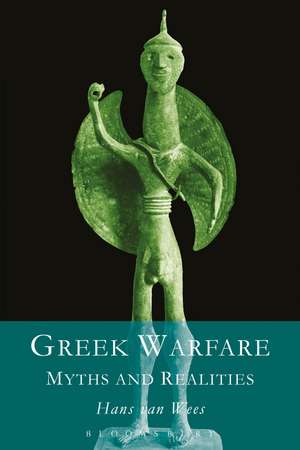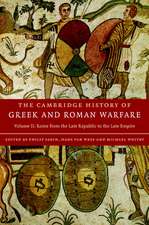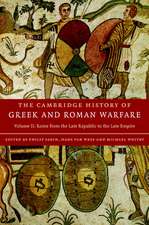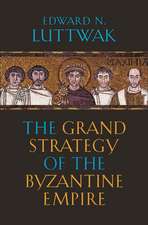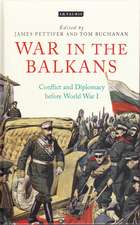Greek Warfare: Myth and Realities
Autor Hans Van Weesen Limba Engleză Paperback – 18 aug 2004
From the soldier's eye view of combat to the broad social and economic structures which shaped campaigns and wars, ancient Greek warfare in all its aspects has been studied more intensively in the last few decades than ever before. This book ranges from the concrete details of conducting raids, battles and sieges to more theoretical questions about the causes, costs, and consequences of warfare in archaic and classical Greece. It argues that the Greek sources present a highly selective and idealised picture, too easily accepted by most modern scholars, and that a more critical study of the evidence leads to radically different conclusions about the Greek way of war.
| Toate formatele și edițiile | Preț | Express |
|---|---|---|
| Paperback (2) | 171.24 lei 22-36 zile | |
| Bloomsbury Publishing – 7 oct 2021 | 171.24 lei 22-36 zile | |
| Bloomsbury Publishing – 18 aug 2004 | 201.68 lei 43-57 zile |
Preț: 201.68 lei
Preț vechi: 245.86 lei
-18% Nou
38.59€ • 40.40$ • 31.93£
Carte tipărită la comandă
Livrare economică 07-21 aprilie
Specificații
ISBN-10: 0715629670
Pagini: 380
Ilustrații: illustrations
Dimensiuni: 156 x 234 x 25 mm
Greutate: 0.54 kg
Ediția:New.
Editura: Bloomsbury Publishing
Colecția Bristol Classical Press
Locul publicării:London, United Kingdom
Caracteristici
Notă biografică
Cuprins
Recenzii
Descriere
From the soldier's eye view of combat to the broad social and economic structures which shaped campaigns and wars, ancient Greek warfare in all its aspects has been studied more intensively in the last few decades than ever before. This book ranges from the concrete details of conducting raids, battles and sieges to more theoretical questions about the causes, costs, and consequences of warfare in archaic and classical Greece. It argues that the Greek sources present a highly selective and idealised picture, too easily accepted by most modern scholars, and that a more critical study of the evidence leads to radically different conclusions about the Greek way of war.
